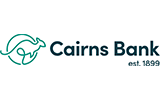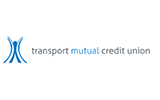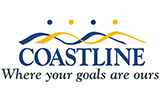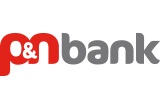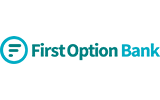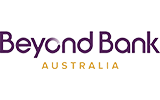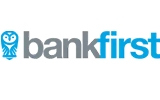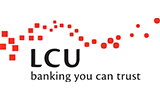What is a secured personal loan?
A secured personal loan is when you borrow money that’s backed by a physical asset, like your car or property. This asset provides security to the lender, so if you can’t repay the loan, the lender can reclaim and sell the asset to recover the loan amount.
Since the loan is secured, lenders can typically offer lower interest rates as well as greater loan amounts compared to unsecured personal loans. The trade-off is that you can lose your asset (used as the security) to the lender if you default on the loan.
With a secured personal loan you can often choose between fixed or variable rates, with loan terms ranging from 1 to 7 years.
In Australia, secured personal loans are most commonly used to purchase cars, motorcycles, boats, caravans and trucks. However, you may be able to finance other large purchases, provided you have an acceptable asset to secure the loan and meet the lender’s criteria.
Assets you can use as security
Based on our analysis of numerous lenders, here are some of the assets you can use as security for a secured personal loan:
- Real estate, including an owner-occupied home or investment property
- Motor vehicle, including a car, motorbike, truck or other registered vehicle
- Valuable items, such as jewellery, gold or other expensive items
- Business assets, like inventory, equipment or machinery
Note: Each lender will have its own criteria about which assets it allows you to secure a personal loan with.
What can you finance with a secured personal loan?
Lenders like to minimise risk and uncertainty wherever they can. If you can remove some of the risk for them, you could get a lower interest rate on your low doc personal loan. Here are some options self-employed borrowers can consider:
Car
You can finance a new or used car and secure the loan with an asset other than the car itself, such as your home or savings, offering greater flexibility. But, the most straightforward option is to use the car as security, which is the most common approach with car loans.
Motorcycle
Whether it's a motorbike or a scooter, the bike you purchase can secure the loan, or you may choose another asset as collateral. Alternatively, motorcycle loans are specifically designed for these purchases and are often the preferred option among motorbike buyers.
Caravan
If you’re looking at caravans, a secured loan allows you to back the loan with the caravan itself or another valuable asset you own. Most lenders offer personal loans for caravans, providing flexible financing options for your mobile home.
Boat
Whether you’re financing a speedboat, yacht, fishing boat, houseboat or jet ski, you can use the vessel itself or another asset you own for the personal loan. Alternatively, there are specific personal loans for boats, offering you a variety of financing options.
Home renovations
You can borrow money for home improvements like remodelling, extensions or renovations. The loan can be secured against your home, or you may have the option to use other assets, like a car, cash savings in a term deposit or high-value items such as gold.
Pool
If you're planning to install a swimming pool, a secured personal loan can help cover the cost. The loan can either be secured by your property or another asset, such as a vehicle.
Wedding
Can help fund your wedding if you don’t have the upfront savings. You may use your home or another valuable asset to secure the loan and cover your wedding expenses, including the honeymoon.
Medical bills
Large medical expenses can be financed with a secured loan, providing a way to manage high healthcare costs. The loan can be secured by your home or other assets, giving you financing options when you need it most.
Debt consolidation
You can consolidate multiple debts into one loan using a secured personal loan. This simplifies repayments and may offer a lower interest rate, making it easier to manage your finances.
Education
If you need a personal loan for your studies, some lenders let you secure it with an asset, although most education loans are typically unsecured.
Holiday
For big holidays or international trips, a secured loan can cover travel-related costs. You may be able to back the loan with a valuable asset, such as your car or home.
Other
This might include finance for investments (i.e. shares or ETFs), business costs, vehicle repairs or funeral expenses. Depending on the lender, you may be able to secure the loan with an asset.
By far the most common reason people get a secured personal loan in Australia is to finance a vehicle. In fact, vehicle finance accounts for more than 45% of all personal loans, according to more than 40,000 loan requests analysed by Money.com.au. The average loan amount on a secured personal loan is $34,282 versus $18,169 for an unsecured loan.
Important considerations for secured personal loans

Phil Collard, Personal Loans and Asset Finance Expert at Money.com.au
“With a secured loan, the lender holds an interest in your asset for the duration of the loan. This means that if you're unable to make repayments, the asset used to secure the loan could be repossessed. Secured loans may also require more paperwork, as the lender will need details about your asset before approving the loan. This could lengthen the application process if additional information is needed. However, these extra steps reduce the lender's risk, and in return, the borrower often benefits from a lower interest rate and better terms.”
Phil Collard, Personal Loans and Asset Finance Expert at Money.com.au
Secured personal loan features
Each lender will have its own offerings, but here are some key features you can expect:
- Loan amounts typically range from $2,000 to $200,000
- Loan terms vary between 1 to 7 years
- Option for either variable or fixed interest rates
- Usually no deposit required
- Repayment options typically include weekly, fortnightly or monthly
- Interest rates are personalised to your overall financial position
- Some lenders offer conditional pre-approval
- Potential to make additional repayments at no extra cost
- Some lenders allow you to pay off the loan early without penalty
- Free redraw on additional loan repayments with some lenders
Our analysis shows some lenders like Commbank and Greater Bank may let you borrow up to 110-120% of the value of your security, particularly if you’re financing a car. This will depend on the lender’s specific conditions and be influenced by factors such as your credit score and overall borrowing capacity.
Interest rates on secured personal loans
Interest rates on our database currently start from 5.79% p.a. (6.00% p.a. comparison rate) but this will be for a borrower with an excellent credit score and strong overall financial position.
The actual interest rate you receive will depend on your individual circumstances, including your credit history, income and the specifics of your loan application.
Our analysis of the products available in the Money.com.au database found secured loans have an average (median) interest rate of 12.22% p.a. This means that while some borrowers may qualify for rates as low as 5-6% p.a., most will likely be offered higher rates, reflecting the lender’s assessment of their financial situation and the loan’s risk profile.
Low rate secured personal loans
| Loan | Interest rates from | Comparison rates from^ | Loan amounts |
|---|---|---|---|
| Liberty Secured Personal Loan | 5.67% | 6.10% | $5,000 - $80,000 |
| NOW Finance Secured Personal Loan | 5.95% | 5.95% | $5,000 - $100,000 |
| Horizon Bank Personal Loans Secured by Deposits | 6.04% | 6.15% | $500 - $100,000 |
| Horizon Bank Personal Loans Secured by Mortgage | 6.04% | 8.06% | $500 - $100,000 |
| Cairns Bank Secured Loans - Motor Vehicle | 6.59% | 7.72% | $3,000 - $25,000 |
| Cairns Bank Secured Loans - Real Estate | 6.59% | 7.72% | $3,000 - $25,000 |
| Transport Mutual Credit Union GreenRoad | 6.89% | 7.20% | $1,000 - $1,000,000 |
| Broken Hill Community Credit Union Cash Secured Loan | 7.19% | 7.61% | $2,000 - $100,000 |
| Coastline Personal Loan - Secured with Property Mortgage | 7.50% | 9.03% | $500 - $200,000 |
| Coastline Personal Loan - Secured with a Fixed Term Deposit | 7.50% | 7.93% | $5,000 - $200,000 |
Fixed vs variable rate secured personal loan
Fixed rate secured personal loan
Your interest rate and repayments will remain the same throughout the loan term. This means you won't benefit if interest rates drop, but you'll also be protected from paying more if rates go up. Having set repayments can also make budgeting easier.
Variable rate secured personal loan
Your interest rate and repayments could fluctuate. You’ll benefit if rates decrease, but your repayments will rise if rates increase. Most variable-rate loans are more flexible with making extra repayments and redrawing these funds if you need them.
Unsecured vs secured personal loans
Here are the main differences between the two types of personal loans:
Loan purpose | |
Unsecured personal loan | More commonly used for consolidating debt, weddings, medical bills, holidays and renovations |
Secured personal loan | More commonly used for cars, motorbikes, caravans and boats but can be used for other large purchases |
Loan term | |
Unsecured personal loan | 1 - 7 years |
Secured personal loan | 1 - 7 years |
Interest rates | |
Unsecured personal loan | Starting from 5.95% p.a. |
Secured personal loan | Starting from 5.95% p.a. |
Type of interest rate | |
Unsecured personal loan | Fixed or variable |
Secured personal loan | Most lenders let you borrow up to $120,000, but others have a maximum of $200,000 |
Fees | |
Unsecured personal loan | Generally higher |
Secured personal loan | Generally lower |
Types of security required | |
Unsecured personal loan | No security required |
Secured personal loan | Vehicle, house, cash savings, gold and other high-value items |
| Unsecured personal loan | Secured personal loan | |
|---|---|---|
Loan purpose | More commonly used for consolidating debt, weddings, medical bills, holidays and renovations | More commonly used for cars, motorbikes, caravans and boats but can be used for other large purchases |
Loan term | 1 - 7 years | 1 - 7 years |
Interest rates | Starting from 5.95% p.a. | Starting from 5.95% p.a. |
Type of interest rate | Fixed or variable | Most lenders let you borrow up to $120,000, but others have a maximum of $200,000 |
Fees | Generally higher | Generally lower |
Types of security required | No security required | Vehicle, house, cash savings, gold and other high-value items |
Is a secured personal loan better than an unsecured loan?
Lenders take on less risk with a secured loan because it’s backed by an asset, like your car or home. As a result, they can offer better terms and lower interest rates. In contrast, with an unsecured personal loan, the lender faces more risk, so the interest rate is usually higher.
Our analysis found that most lenders offer lower interest rates on secured finance options. For instance, Queensland Country Bank shows that interest rates on secured loans are lower compared to unsecured loans. Based on the advertised rates below for a $30,000 loan over 5 years, the total interest paid on the unsecured personal loan would be $2,523 higher than on the secured loan.

What to look for in a secured loan
A competitive interest rate
Look for the lowest interest rate you're eligible for, keeping in mind that the lender will determine your rate based on the level of risk. Your credit score plays a significant role in this. According to Money.com.au data, the average interest rate on a secured personal loan is 12.22% p.a., but borrowers with top credit scores (853-1,200) are likely to receive a lower rate.
Fees and charges
Secured personal loans may have application, annual or monthly fees, as well as charges for extra repayments or early repayment. For example, a small $5 monthly fee can add up to $300 over five years. Lenders must provide a 'comparison rate,' which estimates the total annual cost of the loan, including interest and fees. However, this rate is based on a $30,000 loan over a 5-year term, so it may not reflect your specific loan details.
Loan terms
This refers to the length of time you have to repay the loan. A shorter term can save you money in interest over the life of the loan, but the repayments will be higher. Our analysis shows that most borrowers typically choose a three-year term but most lenders offer up to seven years for secured personal loans.
Flexibility
Check if the loan offers flexibility in the assets you can use as security, as most lenders allow you to secure it with your car, home, savings or other valuable items. Plus, some loans include a redraw facility, allowing you to access extra funds at no additional cost if you've made repayments beyond the minimum required.
Eligibility and how to apply for a secured personal loan
For secured loans, the basic requirements are usually that you:
- Are over the age of 18
- Are an Australian citizen, permanent resident or hold an eligible visa
- Have a fixed, verifiable Australian address
- Are employed or have a regular source of income
- Have a good credit score (though bad credit personal loans may be an option if your score isn’t ideal)
- Are not bankrupt and can afford to repay the loan
- Have an asset to secure the loan that meets the lender’s criteria
To apply for a secured personal loan, here’s what you’ll need to do:
- Submit a loan application to a lender either directly online or through a finance broker
- Provide supporting documents like payslips, bank statements and details of other debts and assets
- Provide details of the asset you’re using as security for the loan outlined by the lender
- Once approved, sign the loan contract and agree to the terms of the loan
- If you’re self-employed or don’t have access to documents like payslips, a low doc personal loan might be more suitable
Money.com.au borrower data shows the average annual income among those applying for a secured personal loan is just over $122,000. Nearly 90% of borrowers are in full-time employment, and the vast majority (88%) have a good, very good or excellent credit score.
Pros and cons of a secured personal loan
Pros
- Often feature lower interest rates
- Higher borrowing limits
- Likely to have lower fees
Cons
- Security can be taken if you default on the loan
- You’ll need to provide details of your asset that’s securing the loan
- Less flexibility to make extra repayments or redraw
Ready to compare secured personal loans?
Get your best offers from multiple lenders. There's no obligation and checking your rates won't impact your credit score.




